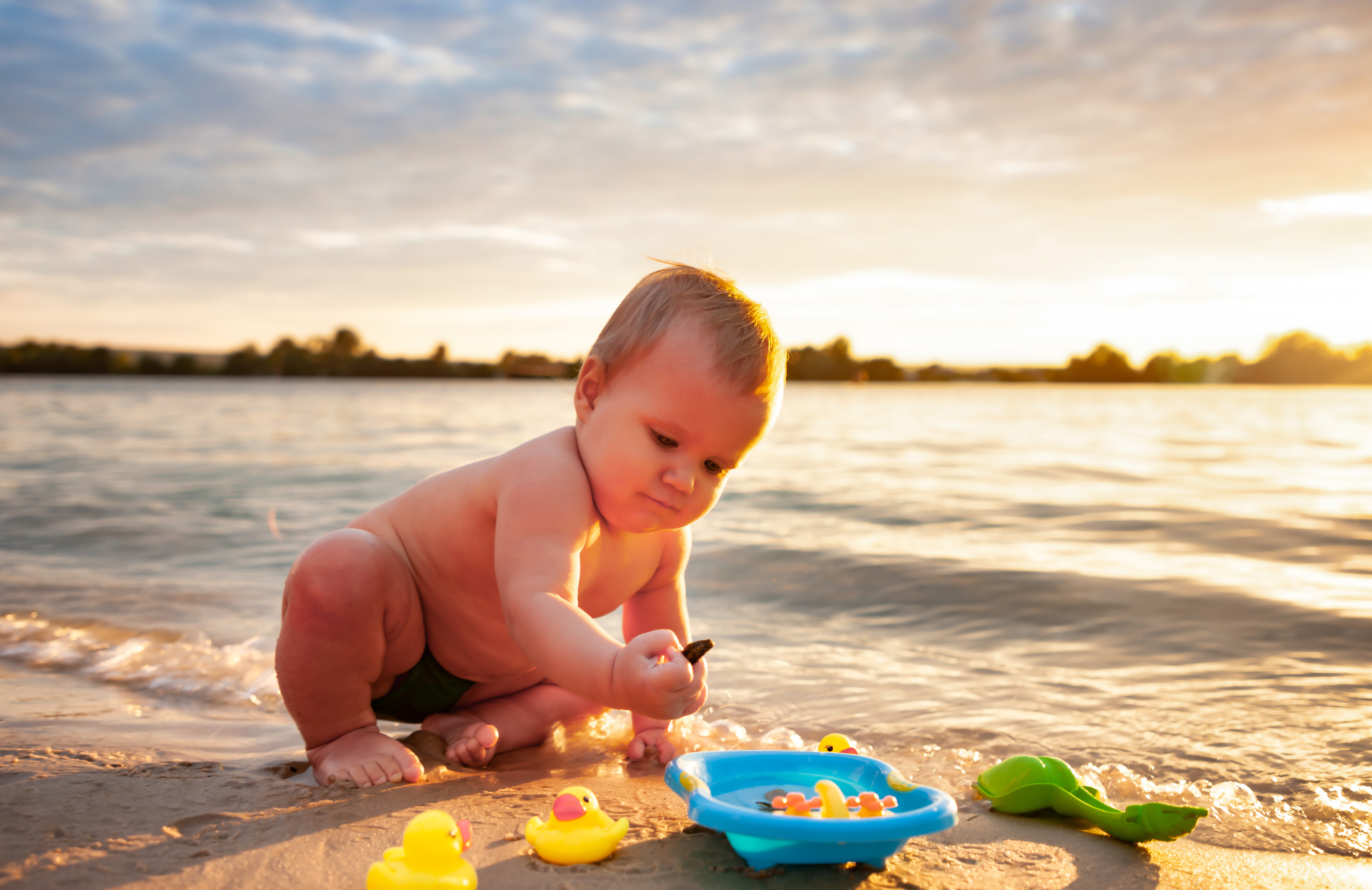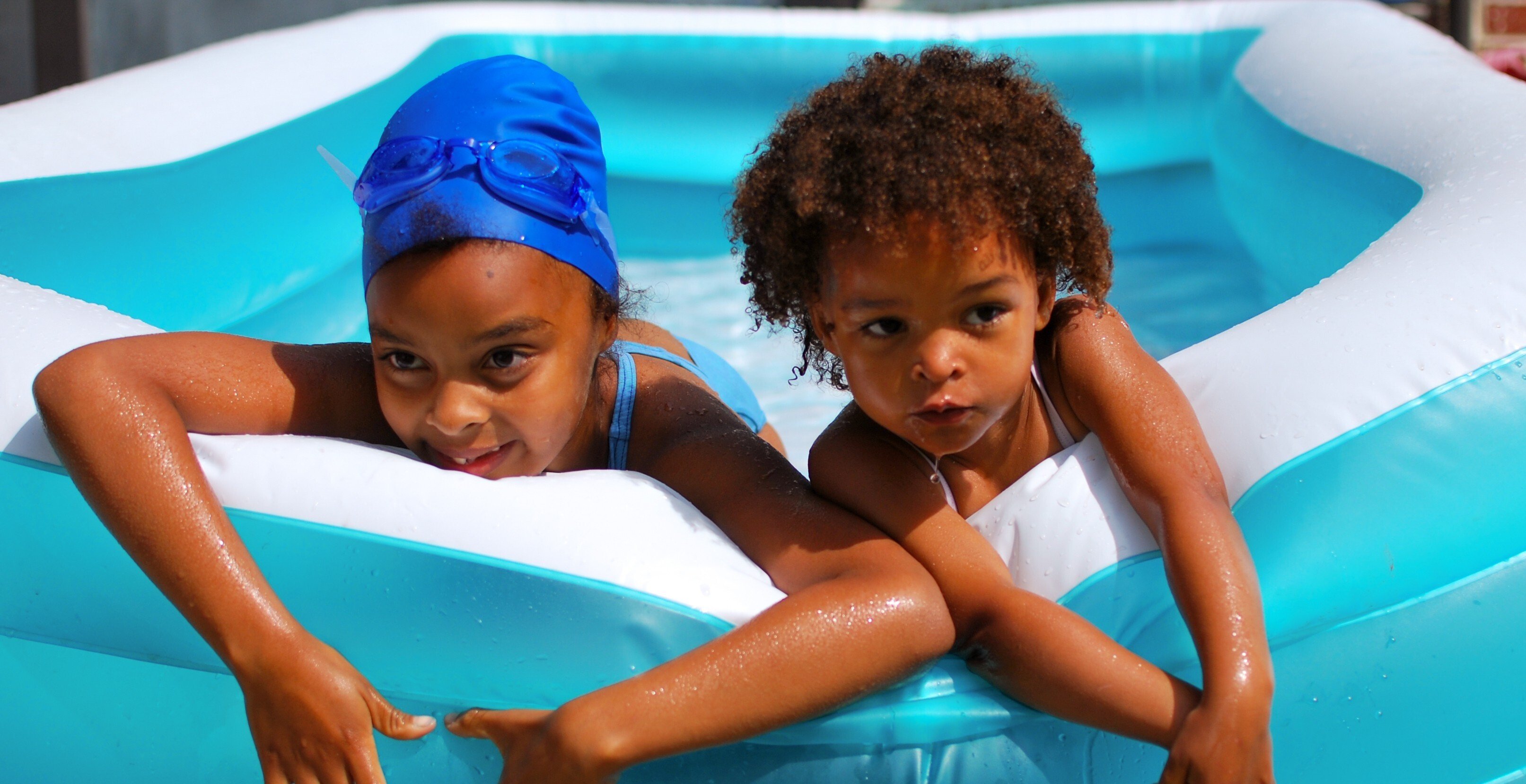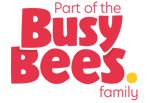
Montessori Philosophy
What is Montessori
The Montessori method of education is a way of working with children that was developed by Dr. Maria Montessori in the early 1900s. It quickly became the world’s largest education movement and this way of working with children is just as relevant today as it was in its inception. The philosophy is based on the belief that a child’s early years (from birth to six) are the period where the greatest academic and social learning potential exists and it encourages children to be independent, self-confident learners through choosing their own work. Dr. Maria Montessori believed that treating children with respect would inspire and empower them to create a better world once they reach adulthood.
The Montessori method is a mastery-based curriculum that encourages each child to develop into a capable, kind, caring, and thoughtful person who is not afraid to act independently. A child can use their own senses to discover the world first-hand; learning and growing at their own pace, supported by trained Montessori Guides. Children develop the ability to concentrate on tasks and see them through in a logical way and consequently they learn to read and write with ease and develop an understanding of mathematics through an exploration of concepts in concrete form. There is ample opportunity for exploration of the world, including animals, people, and plants. Furthermore, children express themselves freely through music, drama, and art.
We offer additional programs that complement our Montessori classrooms. These programs are led by passionate and enthusiastic educators and are designed to nurture specific literacy and math skills. These programs described below are also offered in small class sizes within supportive, engaging enviroments.
Montessori Areas of Learning
Practical Life
One of the first ways children become independent is through mastery of ‘everyday’ tasks such as spooning, pouring, doing up buttons and putting on jackets. In the Montessori classroom, there are materials designed which specifically focus on these skills. This area of the classroom is known as the Practical Life area. Through engagement with Practical Life materials, the children learn how to develop skills that will serve them in their real lives. In this area of learning, children experience real-life situations and activities promoting gross motor activities, three-finger-grasp, concentration, co-ordination, order, inner discipline, care of self and of the environment. These acquired skills enable the child to develop a long sought-after independence, and the development of self-confidence.
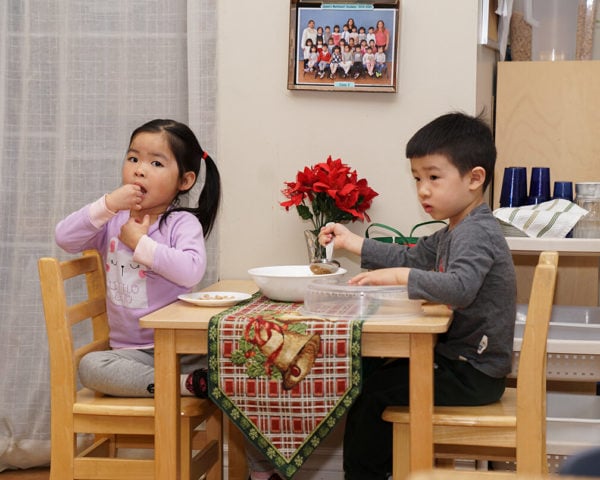
Sensorial
The Sensorial area of the classroom is meant to help the child order their experience of the world. Through interaction with carefully prepared materials, a child experiences a physical understanding of short and long, smooth and rough, heavy and light and all the grades in between. The Sensorial materials are meant to stretch a child’s perception in terms of size, shape, length, colour, sound and texture. They demonstrate grades and shades of experience, rather than develop a binary concept (degrees of lightness/degrees of heaviness- rather than just heavy and light). Through repeated encounters with the Sensorial material, a child is given multiple opportunities to develop discrimination. This skill is fundamental in the further study of mathematical and scientific concepts.
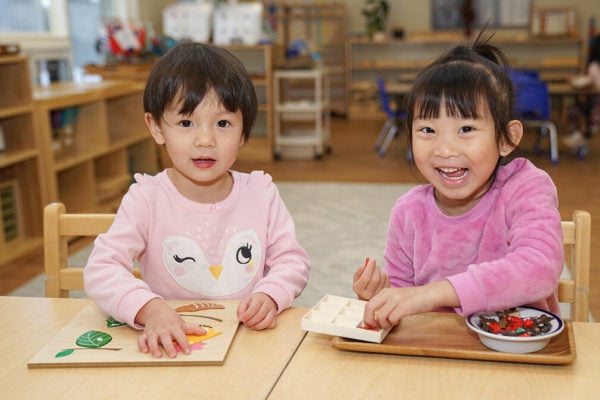
Language
Maria Montessori spoke at great length about the child’s ability to ‘absorb’ language. Unconsciously absorbing their mother tongue when they are toddlers, Casa students learn to consciously investigate both spoken and written language. The Language materials she developed serve to support children at the various stages of their development. From the “I Spy” verbal games and the oral development of a rich vocabulary, to the use of the Moveable Alphabet to ‘write’ words and sentences, the goal of the Language material is to give a child a sense of wonder about both the spoken and the written word.
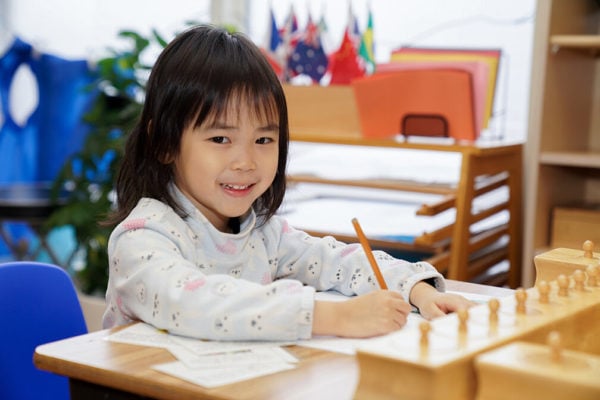
Mathematics
The Mathematics materials developed by Montessori demonstrate a thorough understanding of the developmental stages of mathematical understanding that a young child progresses through. These attractive, enticing materials begin with a concrete experience of a concept (counting the segments of a number rod) and advance to more abstract concepts. As with all of the materials in the classroom, each Math material each focuses on one particular concept. As a child demonstrates mastery of one particular concept, another, more abstract concept is introduced. It is through this way of experiencing mathematics that a child may progress from counting segments in a number rod, to computing addition equations that are both static and dynamic. Geometry is also an area of study a child might choose. That study might begin with the learning of names of common geometric solid shapes and might end with the study of polygons!
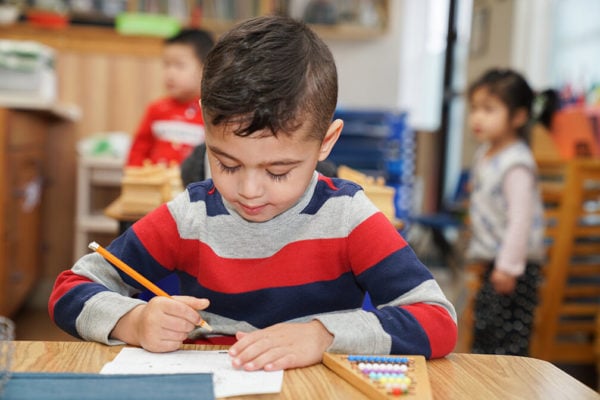
Cultural
The Cultural area of a Montessori classroom includes activities focused in the areas of Science, Art and Music. The Science materials include studies in Botany, Zoology, History and Geography. A child, for example, might begin with a wooden puzzle that shows the parts of the flower, and may progress on to learn the particular names of those parts and might even culminate this knowledge in the making of a "Parts of the Flower booklet". Another child might begin by exploring where the areas of land and water are on a globe and might end up producing a "Map of the World". Such progression from the simple to the complex is evident throughout the various areas of study.
The Fine Arts area of the Montessori curriculum gives a child a unique avenue of personal expression. Having developed various skills in the Practical Life and Sensorial areas of the classroom, the child is now able to use those skills through the journey of producing art and music that is meaningful, expressive and a personal expression.
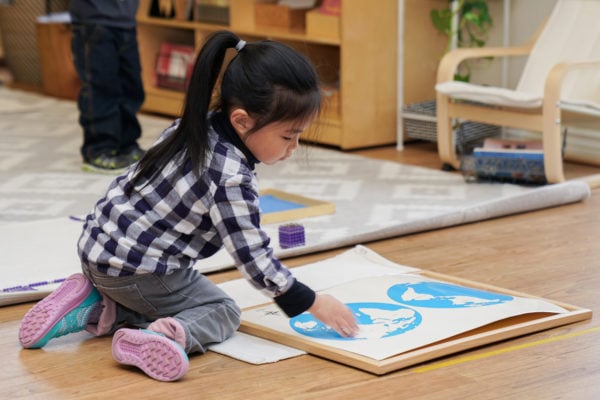
Montessori Environments
Authentic Montessori environments encompass the following principles:
- The learning environment is carefully prepared to fulfill the needs of each child and enable them to become independent, active learners.
- Mixed age groups which not only offer a wide range of activities to spark children’s interest but also enable children to learn from others and learn by helping others.
- Freedom for children to work at their own pace, without interruption, choosing from a range of activities that are developmentally challenging and appropriate.
- Exploration is encouraged so that children find things out for themselves, make mistakes, and correct them independently.
- Respect for each child as an individual personality with unique talents.
- Respect for others, the community, and the environment.

